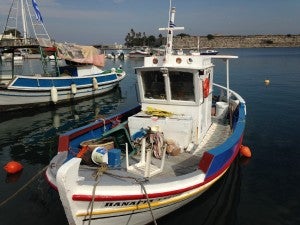After years of deliberation, the European Union has finalized proposals to reform the Common Fisheries Policy (CFP), the EU’s framework for fisheries management. The new policy promises a better future for both fishermen and fish by providing a comprehensive management system designed to restore healthy marine environments while supporting profitable fisheries and thriving coastal communities. The new CFP, which will enter into force in January 2014, calls for Member States to take steps that will ultimately eliminate the wasteful practice of discarding fish at sea. It also requires fishing at sustainable levels by achieving Maximum Sustainable Yield (MSY), and supports a regionalized approach through decentralized decision-making.
Funding transformative change:
These are ambitious requirements that must be adequately funded in order to achieve the policy objectives outlined by the new agreement. The CFP’s funding instrument – the European Maritime Fisheries Fund (EMFF) – will provide resources to help fishermen in the transition to sustainable fishing; supporting coastal communities in diversifying their economies; financing projects that create new jobs; and making it easier for fishermen to access adequate financing. The EMFF is being reformed simultaneously with the CFP and in late October the European Parliament voted in plenary on proposed amendments. Overall, the results are positive and outcomes – such as the refusal to subsidize the construction of new vessels and increases in funding for data collection and control of illegal fishing – gives hope that the EMFF will ultimately complement the new CFP and make true transformation possible.
Achieving transparent, well designed allocation systems:
A new CFP requirement, Article 17, mandates that Member States allocate their fishing opportunities (share of overall EU catch limits by stock) using transparent and objective allocation systems that take into consideration environmental and social criteria, as well as historical catch rates. The EMFF amendments voted by the Parliament included a measure to support implementation of this new obligation. Securing a funding mechanism that dovetails with this important new obligation is encouraging and provides an important opportunity for Member States to engage with the fishing sector in designing allocation schemes that are open, transparent and based on objective criteria. We hope the new funding provision is retained in the Trilogue process.
Article 17 of the CFP and its accompanying EMFF funds should motivate Member States to engage with industry to implement innovative allocation systems that accurately reflect the challenges on the water, deliver profitable fisheries, and restore healthy marine environments. These recent developments dovetail nicely with the UK’s decision to re-allocate some of its fishing opportunities after the recent court case ruled in favor of reallocating quota from the large to small scale fishing sector.
The UK should seize this chance to demonstrate it can be a leader in setting up transparent and secure fishing opportunities that are intelligently designed. Fishing administrations, industry and civil society must all be part of this important dialogue in order to secure smart, sustainable allocation methods and fix broken systems once and for all. Indeed, Member States should start thinking now about introducing transparent stakeholder processes for setting up quota systems, such as those advocated in EDF’s recently released fisheries management toolkit. Fishermen and fisheries managers can consult these resources to design and implement management systems that build resilient, profitable fisheries.
While there is every reason to be optimistic there is still some way to go. Trilogue negotiations on the EMFF between the Parliament and Council will begin this week, with the legislative process expected to conclude before the end of the year. It is essential that the important gains from plenary are not lost in these final weeks.










